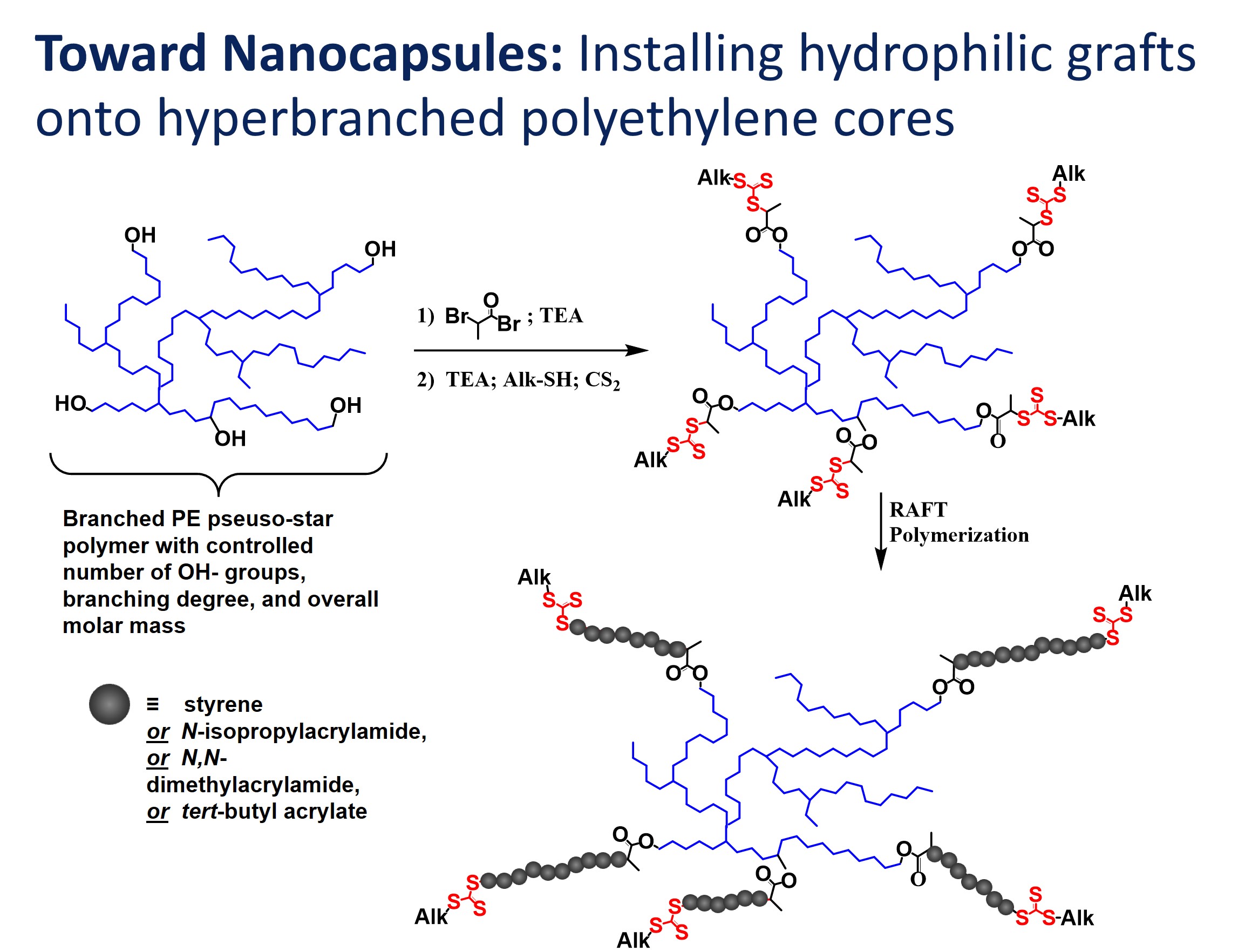2026-112-9
Synthesis and characterization of functional pseudo-star polymers with hydrophobic polyethylene pockets
Vedoucí práce: Dr. Christian Rossner
Konzultant: prof. Jan Merna
Podstata a cíl práce
Amphiphilic macromolecular compounds are key for a plethora of polymer technologies. While the use of simple architectures such as e.g. diblock copolymers is comparably mature, there is a current drive to move toward larger macromolecular structures exhibiting otherwise not accessible functions, such as bottlebrush polymers or hyperbranched polymers. Goal of this work is to unlock access to hyperbranched polyethylenes with hydrophilic polymer grafts using a combination of chain walking catalysis and controlled radical polymerization.
Náplň činnosti studenta
Hydroxy-functional branched polyethylene will be synthesized by chain-walking catalysis. The hydroxy termini will be used to install ATRP and RAFT chain transfer agents (CTAs) in two subsequent reaction steps. The capability of those macro-CTAs for controlling polymerizations of acrylates and acrylamides will be assessed. Polymeric materials will be characterized by UV/visible extinction spectroscopy, NMR, SEC. The work will be solved in framework of international project DFG-CSF.

Doplňující informace
Místo řešení: Ústav polymerů (112)